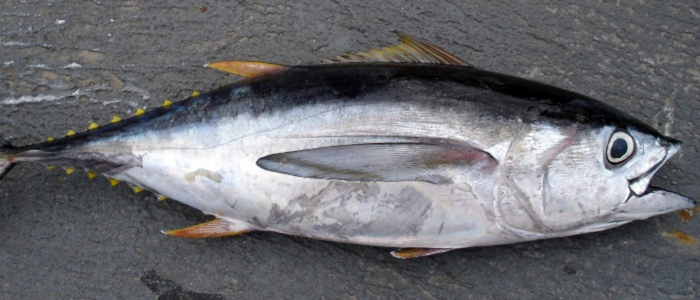
New data published today by the Marine Stewardship Council (MSC) shows continued growth in tuna catch and products certified to its global standards for sustainable fishing.
MSC certified fisheries are now responsible for catching more than 2 million tonnes of tuna per year, making up close to half (47%) of the global wild commercial tuna harvest. As a result, the number of brands selling tuna with the MSC label now exceeds 430, up from 126 in 2015 as companies make good on commitments to source only certified sustainable tuna*.
The data, included in an update to the MSC’s Sustainable Tuna Handbook, shows growing momentum behind sustainable tuna certification and sales. Retailer, brand and fisheries commitments, coupled with growing consumer demand and advances in the technologies which allow sustainable fishing, are delivering tangible benefits. In the three years to March 2022, MSC certified tuna fisheries delivered on 38 conditions of certification helping to further safeguard the oceans and fish stocks.
Challenges remain however in ensuring the long-term sustainability of tuna fisheries. A new briefing, MSC Fisheries Standard version 3.0: Considerations for Tuna Fisheries, also published today, outlines how improvements made to the requirements of MSC certification will impact tuna fisheries.
Improvements of particular relevance to tuna fisheries include stronger requirements on fish aggregating devices (FADs), shark finning, endangered, threatened and protected (ETP) species and effective monitoring, control and surveillance.
The revised Standard, to be launched in late October, also sets new requirements for harvest strategies for fisheries managed by Regional Fisheries Management Organisations (RFMOs) including purse seine and long line tuna fisheries.
Speaking at the MSC’s side event at the World Tuna Trade Conference & Exhibition in Bangkok, the MSC’s Chief Science & Standards Officer, Dr Rohan Currey said: “The new MSC Fisheries Standard will ensure that certified fisheries remain world leaders in sustainable fishing. Certified tuna fisheries will now be required to deliver a set of defined
milestones aimed at securing agreement between multiple national governments to implement state of the art harvest strategies derived through open and fair negotiations. These requirements represent a significant increase in expectations of fisheries managed by RFMOs and will create a unified and powerful push towards ensuring vital protections are agreed that ensure sustainable management of tuna stocks in perpetuity.”
Already certified fisheries will be given the opportunity to apply the requirements for harvest strategies early, provided there is majority agreement between fisheries targeting the same stock. Early application is also conditional on fisheries being assessed to version 3.0 of the Standard at their next reassessment, fast-tracking application of wider requirements including those for FADs, ETP species and shark finning. In recognition of the increased expectations, these fisheries will be given five years in which to secure robust harvest strategies which provide the best protection possible for tuna stocks.
The Marine Stewardship Council
The MSC is an international non-profit organisation which sets globally recognised, science-based standards for sustainable fishing and the seafood supply chain. The MSC ecolabel and certification program recognises and rewards sustainable fishing practices and is helping create a more sustainable seafood market. It is the only wild-capture fisheries certification and ecolabelling program that meets best practice requirements set by both the United Nations Food and Agriculture Organization (UNFAO) and ISEAL, the global membership association for sustainability standards. msc.org



